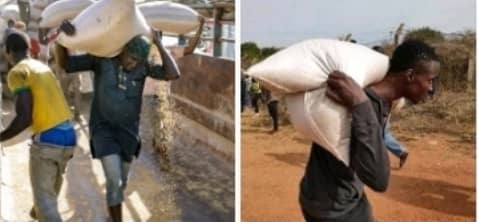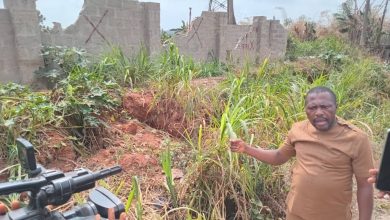
By: TONY OKAFOR
The recent stampedes across Nigeria, resulting in the loss of dozens of lives over food, are a heartbreaking and shameful reflection of the country’s dire situation.
Citizens are risking their lives for a bag of rice, highlighting the desperation for food that has reached a boiling point.
It is tragic that in a country with vast resources, people are paying with their lives while searching for sustenance.
The incidents in Abuja, Anambra, and Ibadan, where stampedes occurred during food distribution events, are a signpost of the hunger crisis plaguing Nigeria.
According to the National Bureau of Statistics, over 80 million Nigerians live below the poverty line, with many struggling to access basic necessities like food.
The government’s inadequate response to rising poverty levels and its overall poor governance have exacerbated the crisis, leaving vulnerable populations to suffer.
As we mourn the loss of lives, it is essential to acknowledge that there is no hard and fast rule that rice must be eaten during Christmas or the yuletide season.
This mindset has led to avoidable loss of lives. It is time to explore alternative food options and redefine our priorities.
Food security is a fundamental human right, and it is the government’s duty to ensure citizens have access to nutritious food.
The current economic hardship, characterized by surging inflation and a record-low local currency, has pushed many Nigerians to the brink of desperation.
President Bola Tinubu’s promise of “renewed hope” seems like a distant memory, as the country struggles to cope with the worst cost-of-living crisis in a generation.
To address this crisis, the government must prioritize policies that tackle poverty and inequality, ensuring the safety and dignity of citizens during public aid and relief programmes.
Furthermore, the government must take concrete actions to address the root causes of the hunger crisis, including investing in agriculture, improving food distribution systems, and providing support to vulnerable populations.
The senseless loss of lives in the stampedes is a wake-up call for Nigeria’s leaders to re-examine their priorities and take immediate action to address the hunger crisis.
The deaths of innocent Nigerians over food are a shameful reflection of our nation’s failure to prioritize the well-being of its citizens.
We must learn from this tragedy and work towards creating a more compassionate and responsive government that ensures food security for all citizens.
We owe it to the memories of those who lost their lives to make a change and ensure that no Nigerian dies for rice again.




